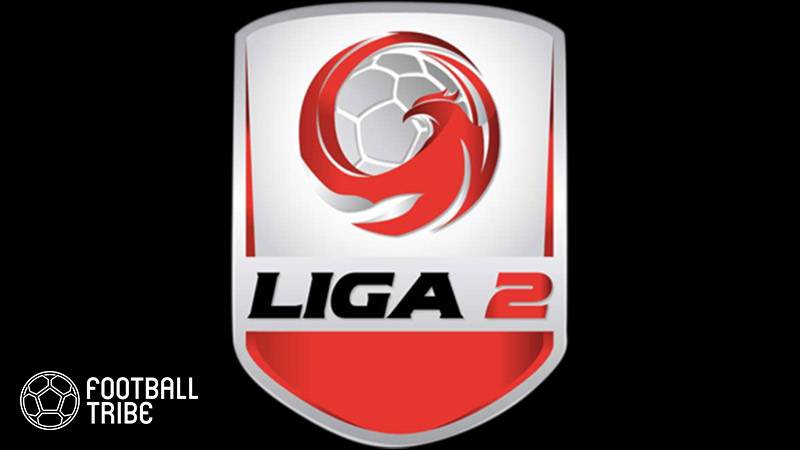
When Ciro Alves scored the winning goal for Persib Bandung in the latest edition of the Indonesian El Clasico on January 11th, little did anyone know that it was the last moment of pseudo-normalcy in Indonesian football, as three days later the entire footballing pyramid within the nation was thrown into chaos, disarray, and uncertainty.
Indonesian football has been steadily recovering from the aftermath of October 1st’s Kanjuruhan Disaster – a devastating stadium crush that killed 135 Arema FC supporters after a Super East Java Derby match between the Singo Edan and bitter rivals Persebaya Surabaya.
The Liga 1 Indonesia returned after a two-month hiatus – albeit in a restricted bubble format similar to that implemented during the pandemic – while security inspections were done at Liga 2 Indonesia stadiums with satisfactory results, providing promise that the second tier would also resume sooner than later.
And despite East Java, Special Region of Yogyakarta, North Sumatra and a few other provinces canceling their Liga 3 Indonesia tournaments outright, a few other provinces are still holding third-tier football, with Persip Pekalongan clinching this year’s Liga 3 Central Java title and the likes of Persipasi Kota Bekasi, Persikasi Kabupaten Bekasi, Dejan FC Depok and Persipo Purwakarta contesting this year’s Liga 3 West Java semifinals.
But a huge bombshell was dropped on January 12th, only one day after Persib had seen off rivals Persija Jakarta 1-0 to finish off the first half of this season’s Liga 1.
In a meeting held by the Football Federation of Indonesia (PSSI)’s executive committee, it was decided that both the Liga 2 and 3 for this season will be cancelled altogether, with relegation being scrapped in the Liga 1 this season, much to the outrage of every football supporter within Indonesia.
The PSSI’s reasonings behind the cancellation of both the second and third tiers were among others security concerns, scheduling concerns with the 2023 FIFA U-20 World Cup around the corner, as well as the request from 20 out of the Liga 2’s 28 contestants that this season’s competition is better off cancelled.
However, things took a turn when it was revealed that a good majority of Liga 2 teams actually wanted the league to continue, either in an isolated bubble format or the standard home-or-away format.
Clubs such as Gresik United, Karo United, and PSCS Cilacap even stated that their representatives’ signatures were forged in the document requesting the league to be cancelled, while other clubs went on to state that the document that they’ve signed was completely different to that used by the PSSI to justify the cancellation of the league, with the clubs stating that the only documents that they’ve signed only requested for the postponement of the league until the league’s management was sorted out.
It was alleged that the request to cancel the league came from clubs who were struggling financially since before the Kanjuruhan Disaster, who used the tragedy as an opportunity to them to outright scrap the competition for their own benefit. Despite being the minority in terms of voting power, the higher ups of these clubs were well-placed within the federation to ensure that their requests would go through, essentially a blatant example of cronyism.
And while the identities of these clubs were never released, several Liga 2 clubs were have known to undergo financial crisis in the months leading up to the Kanjuruhan Disaster – both Persikab Kabupaten Bandung and PSKC Kota Cimahi had failed to pay players since August, while PSPS Riau owner Norizam Tukiman was in a heated stand-off with the club’s own supporters, threatening to move the Askyar Bertuah to Batam in the Riau Islands should nobody came forward to take the club off him. There’s also well-known crisis club Kalteng Putra, who had experienced severe financial troubles since their sole tenure in the Liga 1 back in 2019.
This season’s Liga 1 was spared from cancellation, but it also felt the effects of the PSSI’s questionable decisions. With this season’s Liga 2 being cancelled, relegation was basically abolished from the Liga 1, practically giving teams at the bottom half of the table nothing to play for throughout the rest of the season. Many fear that this would allow lower-ranked teams such as Persik Kediri, Dewa United, and PS Barito Putera to field weakened squads, knowing all too well that they are safe for another season.
Not to mention, the lack of relegation would inevitably open up opportunities for match-fixing.
The second half of the current Liga 1 season has been underway since January 14th, with a couple of matches being postponed due to a lack of security permissions from the East Java police as well as Arema’s inability to secure a temporary home base for the season’s second half. But as the top flight of Indonesian football once again graced its presence upon us, the specter of January 12th’s questionable decisions remain hanging over the remainder of the campaign.
Indonesian football has hit it’s newest low.


